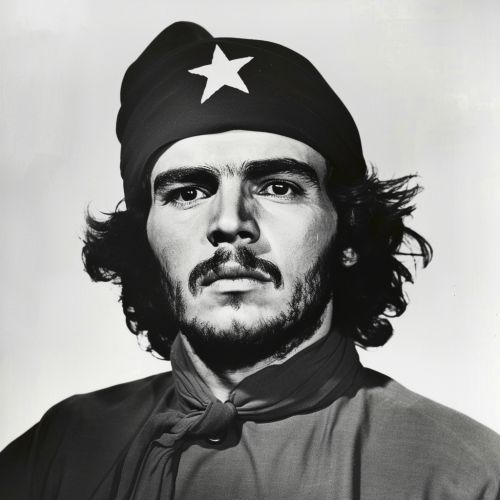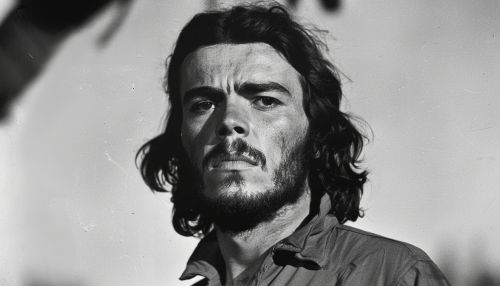Che Guevara
Early Life
Ernesto "Che" Guevara was born on June 14, 1928, in Rosario, Argentina. His parents, Ernesto Guevara Lynch and Celia de la Serna, were of Spanish-Irish descent and belonged to the Argentine upper class. Guevara was the eldest of five children in his family. His childhood was marked by a series of health issues, including severe asthma that would affect him throughout his life. Despite his health problems, he excelled in sports, particularly rugby, which he played as a member of the Rosario club Estudiantes.


Education
Guevara's early education was received at home, under the guidance of his mother, Celia. He was an avid reader and developed an interest in Marxist literature during his adolescence. Guevara later attended the University of Buenos Aires, where he studied medicine. His studies were interrupted in 1951 when he took a nine-month break to travel across South America with his friend Alberto Granado. The poverty and exploitation he witnessed during this trip profoundly influenced his political views and led him to conclude that the only solution to South America's economic and social problems was armed revolution.
Revolutionary Activities
In 1954, Guevara met Fidel and Raul Castro in Mexico City. The Castros were planning to overthrow the U.S.-backed dictator of Cuba, Fulgencio Batista. Guevara joined their 26th of July Movement and played a key role in the Cuban Revolution. He was a skilled guerrilla warfare strategist and led several successful military campaigns. After the revolution, Guevara held several key positions in the new government, including the head of the National Bank of Cuba and minister of industry.
Guerrilla Warfare and Death
In 1965, Guevara left Cuba to spread the revolution in other parts of the world. He first went to the Congo, where he trained rebels in guerrilla warfare but was unsuccessful in sparking a revolution. He then went to Bolivia, where he hoped to start a pan-South American revolution. However, his efforts were thwarted by the Bolivian army, which was trained and backed by the U.S. Central Intelligence Agency (CIA). Guevara was captured and executed by Bolivian forces on October 9, 1967.
Legacy
Guevara's image, particularly the iconic photograph taken by Alberto Korda, has become a symbol of rebellion and global counterculture. He is revered by many as a martyr of the anti-imperialist struggle. However, his legacy is controversial. Critics point to his authoritarian methods and violent tactics and argue that he was a ruthless executioner. Despite these controversies, Guevara remains a significant figure in modern history.
